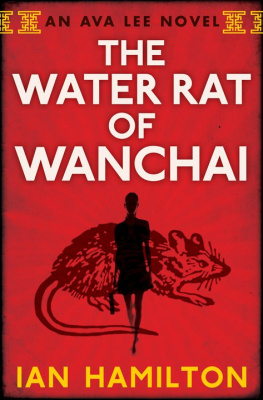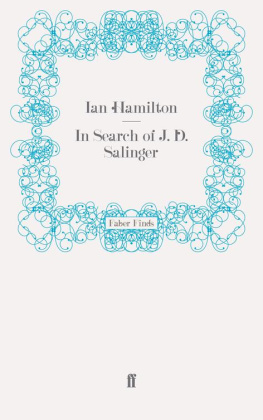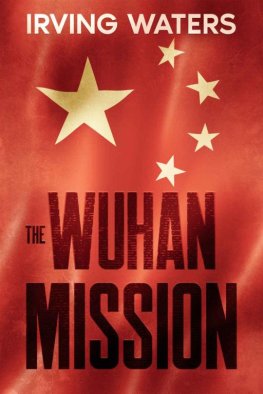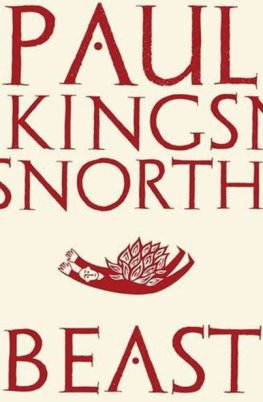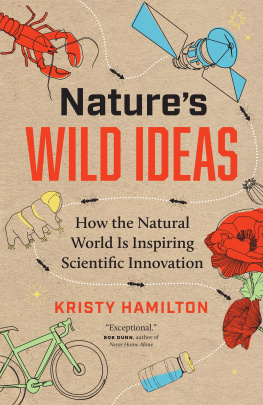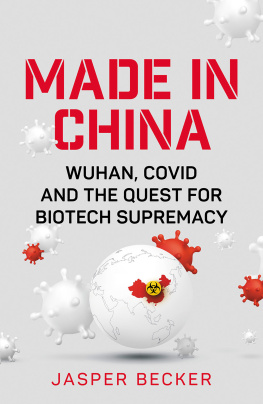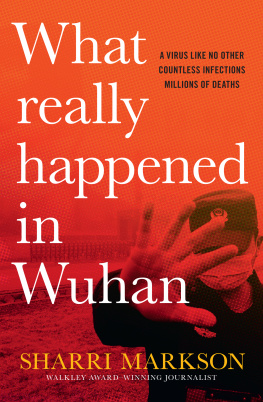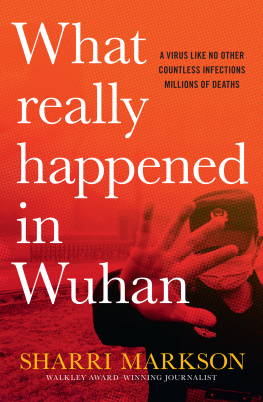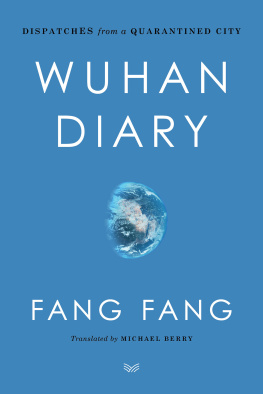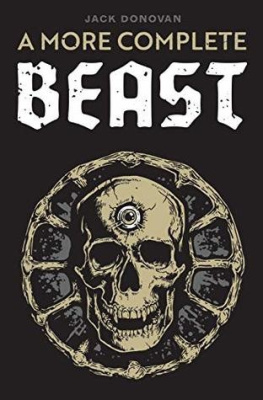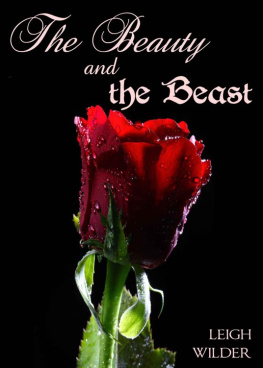Ian Hamilton - The wild beast of Wuhan
Here you can read online Ian Hamilton - The wild beast of Wuhan full text of the book (entire story) in english for free. Download pdf and epub, get meaning, cover and reviews about this ebook. genre: Detective and thriller. Description of the work, (preface) as well as reviews are available. Best literature library LitArk.com created for fans of good reading and offers a wide selection of genres:
Romance novel
Science fiction
Adventure
Detective
Science
History
Home and family
Prose
Art
Politics
Computer
Non-fiction
Religion
Business
Children
Humor
Choose a favorite category and find really read worthwhile books. Enjoy immersion in the world of imagination, feel the emotions of the characters or learn something new for yourself, make an fascinating discovery.

- Book:The wild beast of Wuhan
- Author:
- Genre:
- Rating:4 / 5
- Favourites:Add to favourites
- Your mark:
- 80
- 1
- 2
- 3
- 4
- 5
The wild beast of Wuhan: summary, description and annotation
We offer to read an annotation, description, summary or preface (depends on what the author of the book "The wild beast of Wuhan" wrote himself). If you haven't found the necessary information about the book — write in the comments, we will try to find it.
The wild beast of Wuhan — read online for free the complete book (whole text) full work
Below is the text of the book, divided by pages. System saving the place of the last page read, allows you to conveniently read the book "The wild beast of Wuhan" online for free, without having to search again every time where you left off. Put a bookmark, and you can go to the page where you finished reading at any time.
Font size:
Interval:
Bookmark:
Ian Hamilton
The wild beast of Wuhan
(1)
Ava Lee sat on a bench on the Otrobanda side of Willemstad, the capital city of Curacao, watching ships from China, Indonesia, Panama, and the Netherlands come and go. The crews stood by the railings, waving down at the onlookers as their vessels moved almost rhythmically in and out of St. Anna Bay. Ava waved back.
It was mid-afternoon. She had arrived that morning on a cruise ship that was moored about a kilometre away, at a fort that had once guarded the entrance to the harbour. The fort had been converted into a tourist spot with restaurants, shops, a hotel, and a casino.
She was on vacation with her family: her father, her mother, and her older sister, Marian, who had also brought her husband, Bruce, and their two daughters. They were eight days into the trip, with six to go. Ava wondered if they would survive the long journey back to Miami.
The Lees were not a traditional family by Western standards. Avas mother, Jennie, was the second wife of Marcus. Following tradition, he had married her without divorcing his first wife. They had lived in Hong Kong until Ava was two and Marian four, when Marcus had taken on a third wife. The new family dynamic had caused friction between Marcus and Jennie, so she and her daughters had been relocated to Canada. It was an arrangement that suited them both. He looked after all his families financially, spoke to Jennie every day by phone, and visited her for two weeks every year. Although Ava and Marian had grown up without the physical presence of their father, they knew that Marcus loved them. So, traditional or not, their time together was enjoyed, if only because everyone knew the rules and had the appropriate expectations.
This cruise, though, was a first. Marcuss visits usually consisted of a stay at Jennies house north of Toronto, lunches and dinners with her and Ava, and a two-day trip to Ottawa to see Marian and the girls. The extended holiday had been Marcuss idea; the cruise, Marians. In hindsight, Ava thought they should have known better. It hadnt taken long for discord to surface.
The main combatants were Jennie and Bruce. Bruce was a gweilo, a Westerner, and a senior civil servant with the Canadian government. But the fact that he wasnt Chinese wasnt the issue; it was the kind of gweilo he was uptight and anal. The kind of person who got up early to secure deck chairs for the day. The kind who pre-organized a full day of activities at every port of call. The kind who made sure to use every facility and perk offered by the cruise. The kind who had to be in line at five forty-five for a six-oclock dinner.
Marian and the girls were used to Bruces ways and didnt think twice about it. Marcus and Ava had rolled with the punches for the first few days before politely begging off some of the group activities. But from the moment she stepped on the ship, Jennie Lee had refused to fall in line. She declined to go on any of Bruces planned excursions, and she arrived later and later for every lunch and dinner. She never came to breakfast, being too tired from late nights at the gaming tables.
By day three, Bruce and Jennie had stopped talking. He had taken to glaring at her and she pretended he didnt exist. It was hard on Marian, and Ava felt sorry for her. Marian had always had a more difficult relationship with their mother than Ava did.
Why did she come? Marian demanded.
What choice did she have? Daddy wanted to take us on a family holiday and you talked him into booking the cruise without discussing it with her first. Did you expect her to stay in Toronto for the two weeks of the year she has with her husband?
I thought it would be different.
Its never different with her, or with Bruce, Ava said. So dont make it one-sided. Neither of them is easy.
When they berthed at Willemstad, Bruce had organized a tour of Curacao; a driver was waiting for them at the dock. Jennie didnt show. Marcus went on the tour, grudgingly. Ava had said she wanted to spend a quiet day in town.
She shifted on the bench and gazed at the Queen Emma Bridge, which connected the Otrobanda and Punda quarters of the city. Willemstad was a busy commercial port Curacao was a major oil refiner and exporter and the bridge was in constant motion, opening and closing for vessels coming in and out of the harbour. She looked across the bay, admiring the rows of two- and three-storey stucco buildings painted in pastel blues, greens, and yellows, all of them topped with red tile roofs. The tiles had originally served as ballast on the ships that had brought Dutch settlers to the Caribbean in the seventeenth century. Ava felt as if she were in Amsterdam, in one of the old neighbourhoods built on the canals.
The cruise had come after a two-month break from chasing bad debts halfway around the world. Chasing bad debts was what Ava, a forensic accountant, did for a living, and after back-to-back jobs that had taxed her both physically and emotionally, she had needed some time off. She had spent time with friends, danced at salsa clubs, eaten more than she should, burned off the extra calories by running, eaten some more, and gone to her regular bak mei workouts. She had also been exploring a growing relationship with a Colombian woman named Maria Gonzalez.
Maria was an assistant trade commissioner at the Colombian consulate in Toronto, a newcomer to the city. Avas best friend, Mimi, had met her at a function and done some matchmaking via email. The two women had connected while Ava was travelling, and when she flew home, Maria was waiting for her at the airport. The physical attraction had been instantaneous. Emotionally, Ava was still feeling tentative. She and Maria had vacationed in Thailand for two glorious weeks, and they had managed to end every day wanting to see each other the next. When they got back to Toronto, Maria had begun to hint that they move in together. Ava was relieved that the cruise would give her some breathing space.
The sun was higher in the sky now and the pastel buildings glistened in its light. She got up and walked towards Kura Hulanda, a hotel, conference centre, and museum complex that Dutch businessman and philanthropist Jacob Gelt Dekker had created out of what were originally the citys slums. The original street layout, including the cobblestones, had been kept intact. The old housing had been demolished, and colourful new stucco and wooden houses had been built that now functioned as stand-alone hotel units.
Ava headed for the Kura Hulanda Museum, which was famous for a collection that described the history of the slave trade. The museum was made up of several low-lying buildings linked in an L shape; its dark painted walls and small windows made the edifice look gloomy.
She walked through the galleries, admiring the sculptures, masks, weapons, and descriptions of the societies and cultures of West Africa. All the exhibits were drawn from Dekkers private collection. The final section of the museum presented the two-hundred-year history of the Dutch slave trade. Curacao had been an auction centre for slaves sold into the Caribbean and all of South America. Kura hulanda was a Papiamentu term meaning Dutch courtyard. As Ava walked out the front door of the museum, she found herself standing in just such a courtyard, on the very spot where hundreds of thousands of enslaved people had been bought and sold. She shuddered.
She walked back into the bright sunlight and crossed the Queen Emma Bridge over the harbour to Punda. There she found an outdoor Italian restaurant and ordered a glass of Pinot Grigio and a plate of spaghetti aglio e olio.
She recognized an elderly couple from the cruise sitting at the next table. The woman kept looking at her until Ava finally said hello. They introduced themselves as Henry and Bella from Singer Island, Florida, via New York. Ive seen you on the ship with your family. So attractive, all of you, Bella said.
Font size:
Interval:
Bookmark:
Similar books «The wild beast of Wuhan»
Look at similar books to The wild beast of Wuhan. We have selected literature similar in name and meaning in the hope of providing readers with more options to find new, interesting, not yet read works.
Discussion, reviews of the book The wild beast of Wuhan and just readers' own opinions. Leave your comments, write what you think about the work, its meaning or the main characters. Specify what exactly you liked and what you didn't like, and why you think so.

